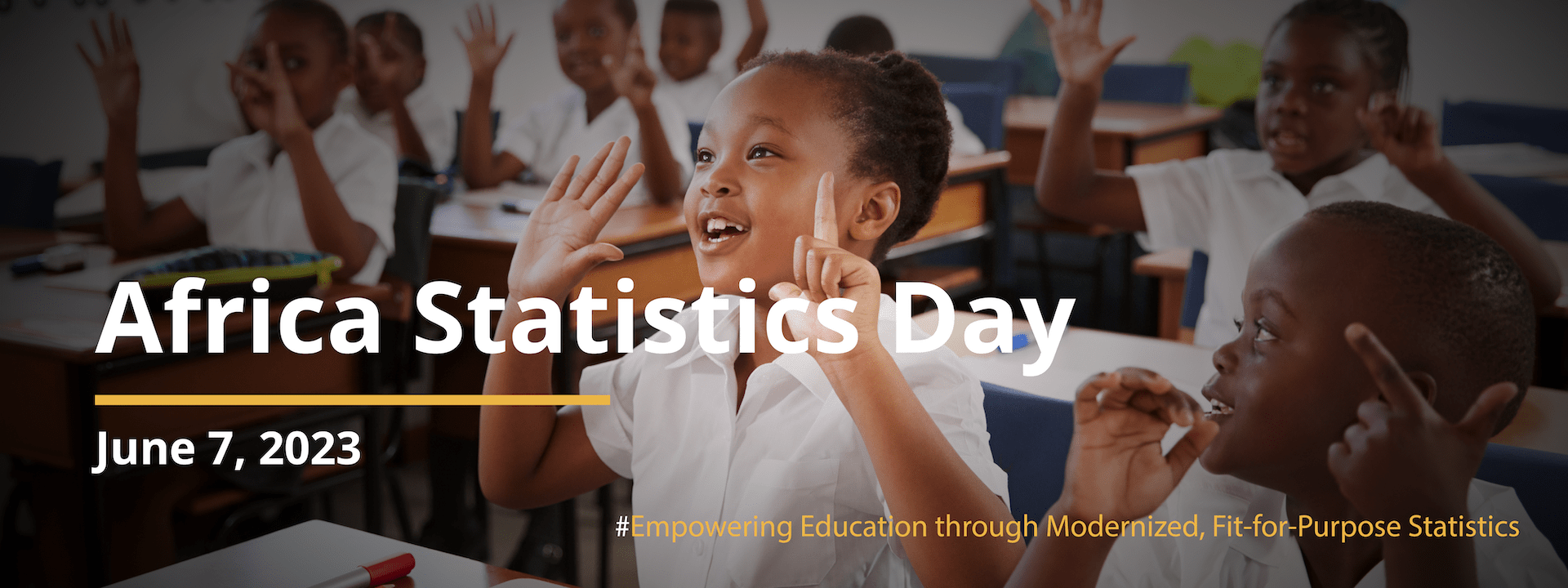Today as we celebrate Africa Statistics Day, it is important to explore how modernized, fit-for-purpose statistics can powerfully support education across the IGAD region and continent as a whole. Education, a foundational pillar for our societies, is both the means to unlock the potential of our youth and the bridge to sustainable development. For IGAD, our commitment to education is deeply intertwined with our drive to produce timely, high-quality data that informs strategic decisions and impactful policies.
Through the operationalization of the IGAD Regional Strategy for the Development of Statistics (IRSDS), key steps towards modernizing the statistical landscape across our member states, is ongoing by ensuring that the data collected and analyzed is purpose-built to support each country’s unique educational aspirations. Modernizing our statistical production for education is essential, with the steps being taken, and the transformative impact being anticipated on the education systems within our region.
To meet the complex and evolving educational needs of our diverse region, we need to rely on data that accurately reflects the realities on the ground. Fit-for-purpose education statistics provide us with insights into enrollment, completion, literacy rates, gender parity, resource distribution, and student performance. More critically, they allow us to understand the unique challenges and opportunities within each member state.
Accurate data enables us to allocate resources equitably, design inclusive policies, and evaluate progress towards achieving Sustainable Development Goal 4 (SDG 4): Quality Education for All. By focusing on fit-for-purpose statistics, we can address inequities, optimize resource allocation, and improve the quality of education—ultimately helping us to nurture a more resilient, knowledgeable, and capable generation.
In line with the IGAD Regional Strategy for Development of Statistics (IRSDS), our modernization efforts are guided by a commitment to strengthen national and regional statistical systems. This comprehensive strategy is designed to harmonize data standards across the region, fostering a unified approach to statistical production that enhances comparability, accessibility, and timeliness.
Our key initiatives under the IRSDS envisaged for education statistics include:
- Capacity Building and Adoption of Innovative Tools: We advocated for the prioritization of the development of statistical expertise across member states, equipping them with the latest technologies and data collection tools. This approach will allow the Member States to boost the accuracy, relevance, and timeliness of the data produced, which is crucial for informed decision-making in the education sector.
- Harmonization and Standardization Across IGAD Member States: Through harmonized frameworks aligned with international and continental standards and guidelines, the IRSDS supports standardized education data collection across IGAD member states. This effort will enable meaningful cross-country comparisons and facilitates regional collaboration, helping us understand shared challenges and leverage collective solutions.
- Establishing Robust, Centralized Data Systems: IRSDS emphasizes the creation of centralized databases that streamline data collection, storage, and analysis. By fostering transparency and efficiency, these systems make it easier for policymakers, educators, and other stakeholders to access and use reliable data. This enables quick, evidence-based decision-making and enhances accountability.
- Collaborating with Key Stakeholders: The IRSDS underscores the importance of partnerships with ministries of education, development partners, and community stakeholders. Together, we can co-design statistical products that are highly relevant to the practical needs of education systems, ensuring our work has real-world impact.
Modernized, fit-for-purpose statistics transform our ability to develop and implement effective education policies. For instance, through accurate data, we can identify under-resourced schools, understand trends in teacher-to-student ratios, and pinpoint disparities in access to education in rural and urban areas. This data, integrated into policy, allows us to respond proactively, ensuring equitable education opportunities for all children and youth, particularly the vulnerable population
Moreover, robust statistics enhance transparency and engagement at the community level. Empowering communities with accessible data fosters a culture of accountability, encouraging parents, teachers, and local leaders to advocate for the quality and inclusiveness of their education systems.
The IRSDS represents our roadmap for a data-driven future, one that places reliable, high-quality statistics at the heart of development efforts. As we pursue this vision, it is important to have all IGAD member states, partners, and stakeholders support our collective mission to transform education statistics within our region. Together, we can build a future where data not only guides policy but also empowers our communities and strengthens the systems that serve them.
Let us work hand in hand to provide future generations with the education, opportunities, and support they need to thrive. Through our shared commitment to the IRSDS, we are building statistical systems that are responsive, inclusive, and transformative. Let us move forward, united in our pursuit of resilient and prosperous education systems for the IGAD region.
Article by,
Charles Ogolla,
Head of Statistics, IGAD.

